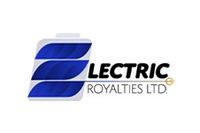Tesla to Reduce Cobalt Use in EV Batteries to “Almost Nothing”
The US-based carmaker is set to further reduce the amount of cobalt used in its batteries, increasing investors’ concerns about future demand.
US carmaker Tesla (NASDAQ:TSLA) says it has reduced the amount of cobalt used in its batteries, increasing investors’ concerns about future demand for the metal.
The battery cells used in Tesla’s Model 3 are of the highest energy density used in any electric car vehicle, the carmaker said in a letter to shareholders on Wednesday (May 2).
“We have achieved this by significantly reducing cobalt content per battery pack while increasing nickel content and still maintaining superior thermal stability,” Tesla said.
The California-based company added that the cobalt content in its nickel-cobalt-aluminum (NCA) cathode chemistry is already lower than the next-generation cathodes that will be made by other cell producers; they use a nickel-manganese-cobalt (NMC) ratio of 8:1:1.
“We think we can get cobalt to almost nothing,” Tesla CEO Elon Musk said in a conference call in response to a question on reducing battery costs.
Cobalt prices have been rising on the back of anticipated demand from the electric car sector.
This price surge, together with supply concerns, has pushed carmakers to look for options to reduce their consumption of cobalt. More than 50 percent of cobalt is mined in the Democratic Republic of Congo, where mining has been linked to human rights abuses and child labor.
Despite Musk’s comments, some analysts believe cobalt demand will continue to increase due to the surge in sales of electric vehicles expected in the coming years.
Benchmark Mineral Intelligence estimates that the use of cobalt in lithium-ion batteries will triple between now and 2026. “Whilst efforts are being made to reduce cobalt dependency, the order of magnitude of EV growth sales will far outweigh this,” Benchmark said in a note.
In addition, most EV makers are expected to use NCM batteries instead of Tesla’s NCA chemistry, which has always been an option but has been less widely adopted among carmakers.
Benchmark Mineral Intelligence forecasts that NCM batteries will constitute up to 70 percent of the total lithium-ion battery market by 2026.
That said, Panasonic (TSE:6752) and Tesla have made excellent improvements to their cell technology and at the same time have been able to reduce their cobalt dependency, the London-based firm added.
In fact, Tesla has reduced its cobalt use by 60 percent in the past six years, “but this is likely to pretty much be the end of the road of cobalt reductions in NCA.”
Meanwhile, analysts at BMO Capital Markets said Tesla’s decision “does imply lower cobalt demand,” given the company’s 10-percent share of the electric car market.
Don’t forget to follow us at @INN_Resource for real-time news updates!
Securities Disclosure: I, Priscila Barrera, hold no direct investment interest in any company mentioned in this article.

